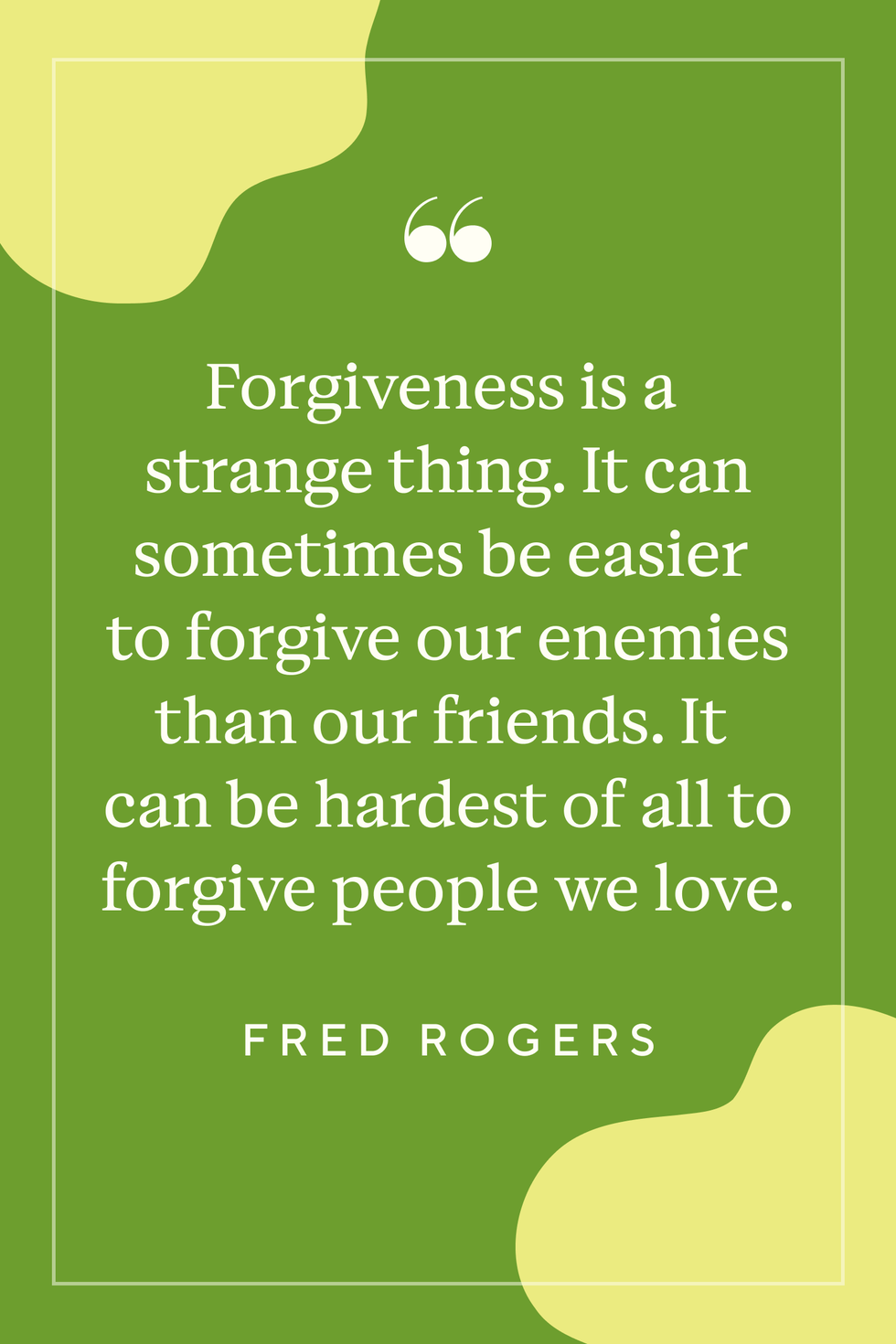How to Forgive Someone Who Has Hurt You Deeply: Practical Tips for Emotional Healing
How to Forgive Someone Who Has Hurt You Deeply: Practical Tips for Emotional Healing
Blog Article
Recognizing the Value of Mercy in Healing Relationships
Forgiveness is usually viewed as a straightforward act of releasing, yet its value in healing partnerships expands far beyond plain absolution. It acts as a crucial mechanism for emotional release, enabling people to browse the intricacies of pain and resentment. Recognizing the nuanced distinctions in between mercy and reconciliation can brighten the course toward much healthier interactions. As we explore the multifaceted benefits of mercy, one need to consider how these concepts can transform not only personal relationships but additionally the more comprehensive social fabric. What stays to be revealed is the extensive effect mercy can carry individual growth and common harmony - The importance of forgiveness.
The Interpretation of Forgiveness
Although forgiveness is usually perceived as a straightforward act of releasing, its meaning incorporates a complex interplay of mental and emotional procedures. At its core, forgiveness is the aware decision to release sensations of bitterness or vengeance toward an individual or group that has caused damage. This procedure is not just concerning absolving the offender; rather, it includes a profound emotional transformation that can result in personal development and healing.
Forgiveness is diverse, usually characterized by an individual's internal struggle to reconcile their pain with the wish for peace. It needs identifying the misdoings devoted, processing the linked emotions, and ultimately choosing to move onward without the problem of bitterness. This choice commonly requires a cognitive shift, where one reframes their understanding of the criminal and the disobedience, permitting compassion and recognizing to arise.
Notably, mercy does not indicate condoning the behavior or neglecting the violation; it is an intentional act that prioritizes emotional wellness. By defining mercy in this manner, we can value its duty in assisting in much healthier relationships and fostering emotional durability, setting the phase for deeper expedition into its advantages.
Psychological Benefits of Forgiveness
Forgiveness offers substantial emotional benefits that can greatly impact an individual's psychological wellness and total health. When a person chooses to forgive, they proactively launch sensations of bitterness, temper, and resentment, which can otherwise develop a heavy emotional problem. This release usually causes a reduction in anxiety and anxiety, advertising a sense of tranquility and emotional stability.
In addition, forgiveness fosters an enhanced capacity for compassion and concern. By understanding the point of view of the offender, individuals can grow a much deeper psychological strength, which improves their capacity to manage future challenges. This process not just improves psychological regulation yet additionally adds to a much more positive outlook on life.
In addition, flexible others can enhance one's self-worth and self-respect. It permits people to redeem their personal power, breaking without the adverse cycles of victimhood - The importance of forgiveness. This newly found empowerment can bring about healthier emotional feedbacks and stronger social partnerships
Mercy vs. Settlement
The distinction in between mercy and reconciliation is important in comprehending the dynamics of healing relationships. Mercy is an inner procedure wherein an individual selects to allow go of bitterness and adverse feelings in the direction of somebody that has actually triggered damage. It is primarily a personal journey, focused on psychological release and self-healing, enabling one to relocate onward without lugging the problem of past complaints.
On the other hand, reconciliation entails restoring and bring back the relationship to a state of trust and common regard. This process usually requires open communication, active participation from both events, and a dedication to addressing the underlying problems that led to the dispute. While forgiveness can take place separately, settlement demands the desire of both individuals to participate in dialogue and work toward a common understanding.
It is important to note that mercy does not constantly lead to settlement. A person may forgive one more without opting to recover the partnership, specifically if depend on has been irrevocably damaged or if the connection is deemed unhealthy. Recognizing this distinction permits individuals to navigate their emotions successfully and make notified decisions concerning their partnerships.
Actions to Grow Mercy
Cultivating forgiveness is an intentional process that involves numerous essential steps intended at assisting in emotional healing. The very first step is acknowledging the pain triggered by the violation. Identifying one's sensations is important, as it allows people to refine their you could check here feelings really.
Following, click for source reviewing the event and understanding its effect can give quality. This representation must consist of checking out the motivations behind the transgressor's activities and recognizing that every person is fallible.
The 3rd action includes making a mindful decision to forgive. This decision is vital, as it symbolizes a desire to allow go of bitterness and progress.
Subsequently, sharing feelings in a positive manner can be useful - The importance of forgiveness. Whether with journaling, speaking with a relied on friend, or seeking therapy, articulation of emotions can aid in the mercy trip
Real-Life Instances of Forgiveness

In another example, a close-knit group of pals dealt with a significant break after one participant accidentally shared an exclusive key. As opposed to nurturing bitterness, the impacted close friend made a decision to forgive, understanding the relevance of valuing the relationship over the error. This choice urged open discussion and eventually reinforced their link.

Conclusion
Finally, mercy plays a critical role in the healing of relationships by facilitating the launch of negative feelings and fostering empathy. By comparing mercy and reconciliation, people can participate in a useful procedure that improves psychological health. Executing actions to cultivate forgiveness can bring about transformative outcomes, enhancing links and promoting a helpful setting. Eventually, the technique of mercy acts as a stimulant for personal development and the nurturing of much healthier interpersonal dynamics.

Report this page